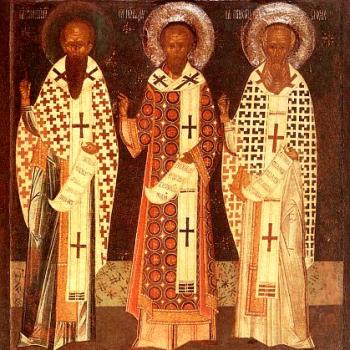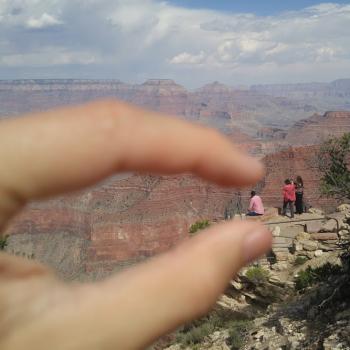Like many professors, I work at an institution where I teach broad survey classes. At Southwestern Seminary, this means I regularly teach the standard Church History sequence—Church History I and II—in the Master of Divinity program. The recent addition of a B.S. in Biblical Studies at our Houston campus and in our prison extension required that I also add the bachelor’s level one-semester Survey of Church History to my repertoire of broad survey classes. Each semester as I prepare to teach, the broad swath of material that must be covered in such classes baffles me. Determining what events to cover—or worse, which ones to leave out—or even which text to select (a subject I have written about here) presents special challenges in such chronologically expansive courses.
Small colleges with a liberal arts curriculum, community colleges with a humanities core, denominational colleges, and theological seminaries all offer similarly broad survey courses. Most require their students to take such courses as part of their degree program. Yet, most students pursuing a doctorate in history or studying history in religious studies departments spend their graduate school careers concentrating on a narrow chronological slice of history. As a result, most junior faculty members arrive ill-prepared to teach the very courses their institutions most need them to teach: survey courses in history, religion, and the history of religion. This often means either a summer of cramming or semesters of fumbling through such courses. Unfortunately, such fumbling occurs at a time in the young professor’s pre-tenure career when teaching assessments are most critical.
As a result, graduate students should consider several things. First, they should think about where they will end up teaching. Although the standard graduate student answer of “Wherever I get a job!” holds some validity, thinking in a specific direction can actually help secure a job through developing targeted proficiencies. For instance, if a graduate student aims for a post at a Lutheran denominational school, taking a summer to develop teaching competency in Lutheran history would strengthen one’s future application. Second, even those newly-minted Ph.D.’s that end up teaching at research universities will likely be assigned several survey courses to teach their first few years. Thus, instead of trying to avoid offers to serve as a teaching assistant for large survey classes, graduate students should pursue them. Other than teaching the class, there is no better way to garner teaching expertise than by serving as a teaching assistant in broad survey classes like U.S. History to 1860 or the History of Christianity. Further, assistants should ask to meet weekly with the professor of record to discuss the organization and pedagogy implemented in the class. Third, grad students should try to teach a survey class. If a program does not afford this opportunity, they can seek it at other area universities and/or community colleges. Although I did not do this, several colleagues did, vastly improving their teaching and marketability. Finally, if their goal is the classroom, students might consider preparation for teaching—not just research—when considering schools. Does the program at Super Scholarly State University of the Adirondacks afford you the opportunity to do the things that will prepare you to teach at your targeted institution type? Does it have a teaching center to help you develop your skills?
In my case, some of these things fell into place accidentally. For instance, my doctoral program required demonstrated competency in the whole of the history of Christianity. Thus, I sat for exams in Early and Medieval Christianity, Christianity in the Reformation Era, Modern European Christianity, and American Religious History. Thankfully, this prepared me well to teach the whole of Church History in my present seminary setting. In addition, I served as a teaching assistant in two of the areas. Ten years later, these are the areas I still find myself most comfortable teaching. I also had the privilege of learning about pedagogy from the excellent instructors at my school’s Center for Teaching.
Providentially, my program prepared me to teach in some significant ways. Even so, if I could go back and do it over again, I would do some things differently. First, I would take more classes from the Center for Teaching, seeking one of their certifications. Second, I would vigorously pursue the opportunity to serve as a teaching assistant in the other two historical areas. Third, I would not skip taking the Baptist History course when it was offered. (Taking the course would have kept me from spending most of the summer before my first fall teaching cramming for my Baptist Heritage class.)
Although I still aspire to be a good researcher and writer, teaching excellence is increasingly important to me (and to my institution). Presently, I am a solid teacher, having successfully made the transition from graduate student learner to professorial instructor. Thinking as a future teacher in graduate school and intentionally implementing the ideas outlined above would have helped me make that transition more easily.












